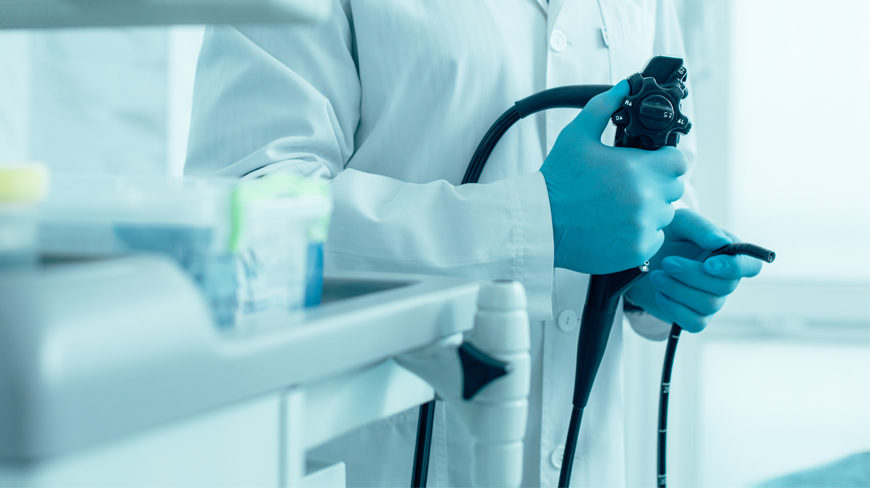6 Reasons You May Need an Endoscopy
If you’re experiencing digestive issues or chronic heartburn or if you’re suffering from stomach ulcers, your doctor may recommend an endoscopy. There are several reasons you may need an endoscopy. Because an endoscopy allows your doctor to get a closer look at the inside of your esophagus, stomach, and the top of your small intestine, endoscopies are also used as an early detection method for certain types of cancers or other diseases.
What is an Endoscopy?
An endoscopy is a medical procedure that allows a doctor to examine the gastrointestinal tract. When it is performed to look at the esophagus, stomach, and small intestine, it is called an esophagogastroduodenoscopy (EGD) or upper endoscopy. Many times, it is referred to as simply endoscopy.
During the procedure, a thin, tube-like instrument with a light and a camera at the end, or endoscope, is inserted into the mouth and slowly passed through the esophagus, stomach, and small intestine. The camera then sends video images to a monitor, allowing the doctor to see inside the body and diagnose any issues.
Why Would I Need an Endoscopy?
Endoscopies are generally safe and minimally invasive and can be used to diagnose and treat various medical conditions. Here are six reasons you may need an endoscopy.
1. Gastrointestinal Bleeding
An endoscopy may be used to identify the source of gastrointestinal (GI) bleeding. It can help to determine the cause of the bleeding, such as a tear or ulcer in the digestive tract. An endoscopy can also treat the bleeding by cauterizing or injecting a substance to stop the bleeding.
2. Gastroesophageal Reflux Disease
Endoscopy can be used to diagnose and treat gastroesophageal reflux disease (GERD) which can develop as a result of chronic heartburn or acid reflux. An endoscopy can help identify any damage to the lining of the esophagus caused by stomach acid and can also be used to take biopsies of the tissue.
3. Ulcers
An endoscopy can be used to diagnose and treat ulcers in the stomach or small intestine. Because of the size and flexibility of the endoscope, your doctor can view the ulcer and take biopsies of the tissue.
4. Gastrointestinal Obstruction
An endoscopy can be used to view obstructions and diagnose and treat blockages in the digestive tract. This procedure can also be done to remove food or foreign objects stuck in the upper GI tract.
5. Inflammatory Bowel Disease
Other chronic inflammatory bowel diseases (IBD) like Crohn’s disease or ulcerative colitis can be diagnosed and treated with an endoscopy. Your doctor can use the endoscope to view the inflammation, assess the severity of the damage, and take biopsies of the tissue.
6. Barrett’s Esophagus
Your doctor may recommend an endoscopy to diagnose and treat Barrett’s esophagus. This condition occurs when people who have chronic GERD also experience regular acid reflux which damages the lining of the esophagus. In this scenario, the endoscope can view the abnormal cells and take biopsies of the tissue.
What To Expect During an Endoscopy
An endoscopy is usually done as an outpatient procedure, which means you do not need to stay overnight in the hospital. Before the procedure, you’ll be given medication to help you relax. You’ll be asked to lie on a table during the exam, and a doctor will perform the endoscopic procedure. You may be wondering how long does an endoscopy take, the entire process usually takes about 30 minutes, and you’ll be monitored closely by medical professionals the whole time.
After the procedure, you may experience minor discomfort or soreness in your throat where the endoscope was inserted. This should go away within a few days. You may also experience nausea or vomiting for a few hours following the procedure. It is important to drink plenty of fluids and rest until the symptoms subside.
Talk to Your Doctor To Learn More About Endoscopies
An endoscopy is an essential tool for diagnosing and treating many medical conditions. It is a safe and effective procedure that can provide valuable information to help doctors make informed decisions about a patient’s care.
If one of these reasons you may need an endoscopy fits your situation, talk to your doctor about the risks and benefits of the procedure. Not sure if an endoscopy is right for you? Call to schedule an appointment with your doctor today!
Request Appointment
Related:


